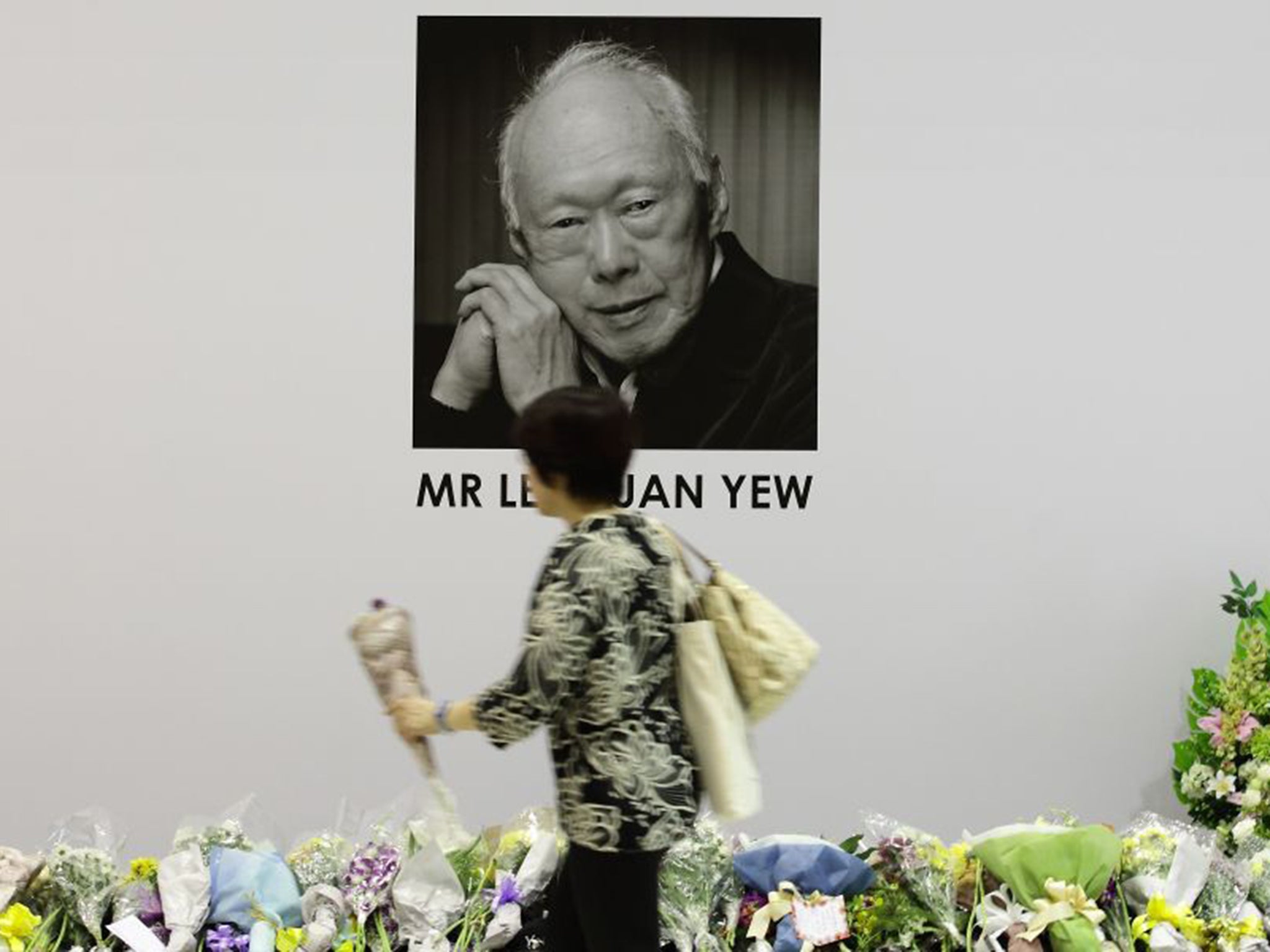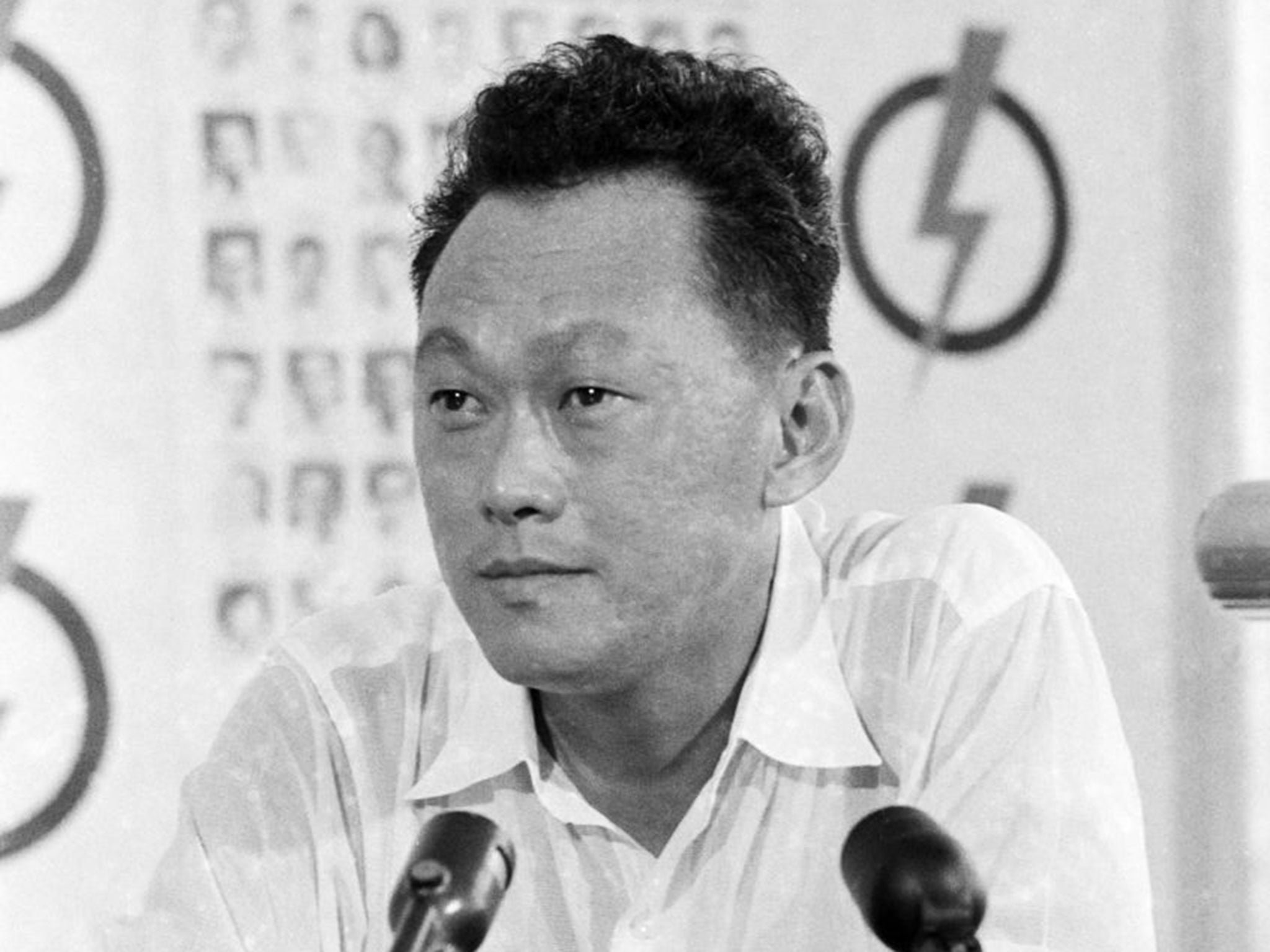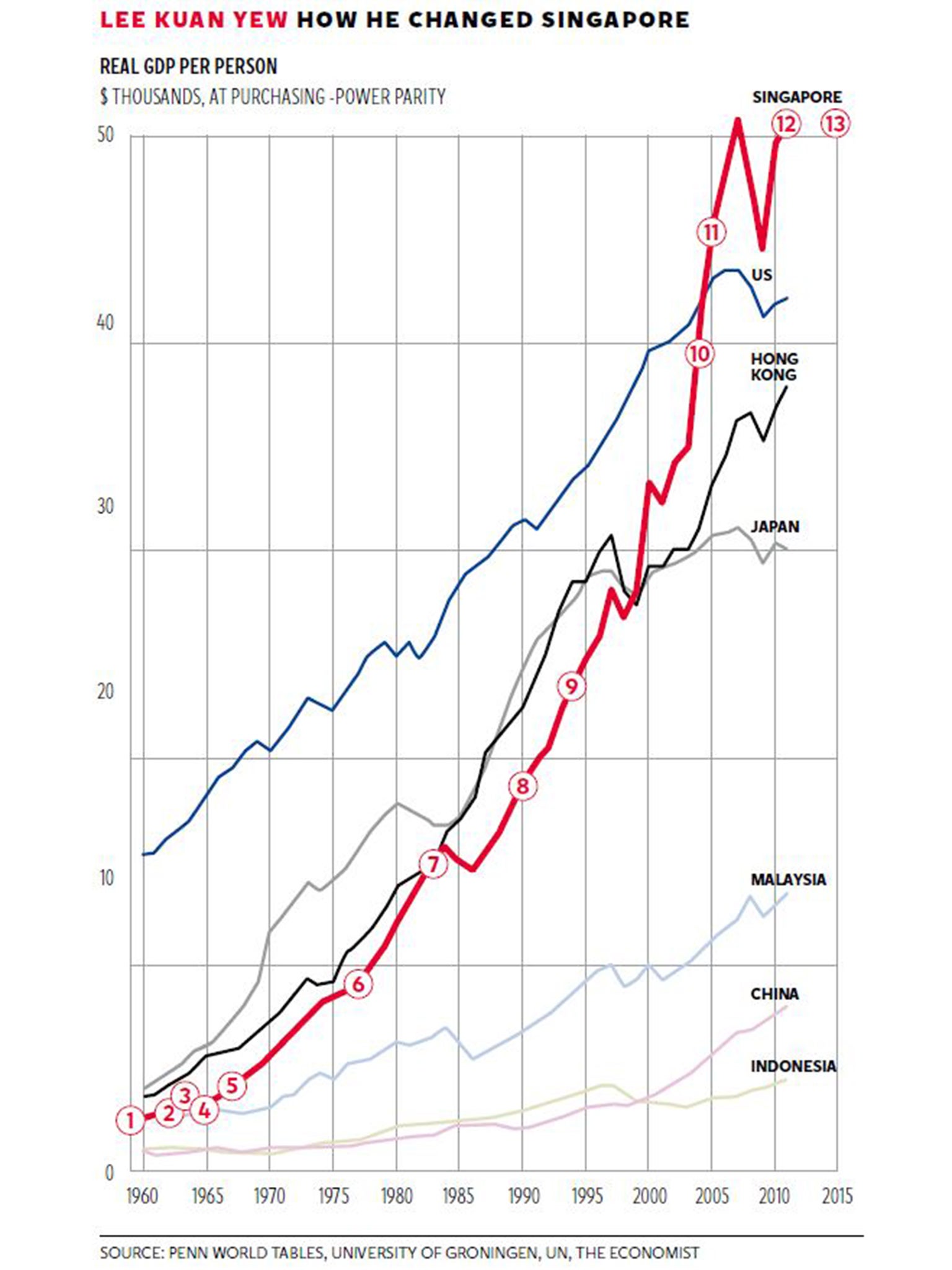Lee Kuan Yew dead: 'Bulldozer who built Singapore' leaves legacy that divides opinion
Lee Kuan Yew, who led city-state for more than three decades, was regarded as both hero and tyrant

Your support helps us to tell the story
From reproductive rights to climate change to Big Tech, The Independent is on the ground when the story is developing. Whether it's investigating the financials of Elon Musk's pro-Trump PAC or producing our latest documentary, 'The A Word', which shines a light on the American women fighting for reproductive rights, we know how important it is to parse out the facts from the messaging.
At such a critical moment in US history, we need reporters on the ground. Your donation allows us to keep sending journalists to speak to both sides of the story.
The Independent is trusted by Americans across the entire political spectrum. And unlike many other quality news outlets, we choose not to lock Americans out of our reporting and analysis with paywalls. We believe quality journalism should be available to everyone, paid for by those who can afford it.
Your support makes all the difference.They arrived from all parts of the island to sign a condolence book and pay their respects beneath a large portrait of the man known as “LKY”. “We are very proud of him and everything he has achieved,” said Winnie Koh, who brought a bus load of senior citizens to say farewell to the man who died on Monday morning local time.
Singapore’s government has declared seven days of mourning, and flags will fly at half-staff on state buildings. There are very few elderly Singaporeans who doubted the longest-serving Prime Minister, let alone question his record of taking the nation of 5.4 million people from Third to First World in a generation.

In Tanjong Pagar, Mr Lee is the icon who fought for people’s right to live. “We feel great love for him, he did so much for our country,” Ms Koh said. “We are lucky to have had a father like him – all of Singapore’s citizens have something – whether a roof over their heads, food or a free education. And he did all of this for us.”
Among his achievements, Mr Lee succeeded in stamping out corruption in the civil service and rolled out policies which encouraged foreign investment, while promoting civil obedience and interracial harmony among Singapore’s ethnic Chinese, Malay and Indian population. “He was the man who would come out to set things right,” wrote former Straits Times journalist, Bertha Harian. “Like it or not, they listened and followed. He was a bulldozer, true, but it was so that he could build a house, the Singapore house.
“They can forgive a lot of things he did, because they too believed in building the Singapore house.”
Under Mr Lee and his successors, Singapore was known around the world for its strict social order, including a ban on chewing gum, restrictions on free speech, a practice of bankrupting political opponents with defamation lawsuits, and canings for crimes some countries would rule as minor. In recent years, it became socially more liberal.
But Mr Lee’s leadership was criticised for limiting free speech and public assembly as well as the heavy-handed treatment meted out to his opponents – many of whom were detained without trial, or sued and bankrupted. At the start of the national mourning, some are wary of the “triumphalism” and “creation myths” that go hand-in-hand with the LKY legacy.
“We all talk about what he did right, but there is not enough discussion about what he might have done wrong,” says Sudhir Vadaketh, a writer. “There were a lot of things Singapore gained under his rule, but there were a lot of things lost too: such as individual liberty and a belief in a more egalitarian society. The pursuit of money, class consciousness and status became very much entrenched under his leadership.”
Slow progress in political and media freedoms as well as curbs on civil society were also features of his long rule. Phil Robertson, deputy Asia director of Human Rights Watch, said Mr Lee’s economic legacy speaks for itself but it came “at a significant cost for human rights”. He tweeted: “Singapore should end Lee Kuan Yew’s legacy of being a one-party state where political opponents are targeted and contrary views muzzled.”

National newspapers printed special commemorative editions yesterday honouring Mr Lee’s life. But in the afternoon, free speech was punished as licenses were revoked for Speakers’ Corner – a place which has become synonymous with protests against everything from Singapore’s population growth to gay rights.
It was a day of mainly restrained emotions and, on the whole, business as usual in the City State. The move against free speech passed by without much comment. “I don’t think a lot of people want to have an honest discussion about him,” says Mr Vadaketh. “For so many years we’ve blissfully traded away liberties under the guise that this was for the greater good. It might now take a while for people to face up to the realities of what he did.”
A private wake for the Lee family will take place today at Sri Temasek, the Prime Minister’s official residence. After that, he will lie in state at parliament. A state funeral is set for Sunday.
Join our commenting forum
Join thought-provoking conversations, follow other Independent readers and see their replies
Comments